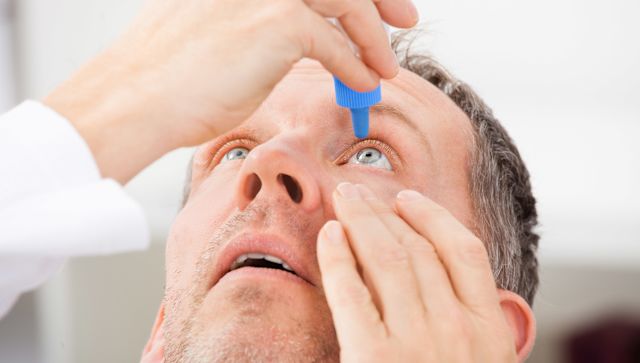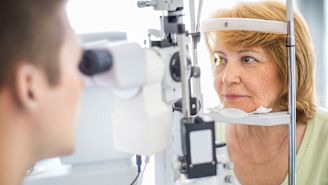Let's face it—dry eyes don't feel good. Sometimes they can feel scratchy or gritty, like something's caught in your eye. Other times you may feel a stinging or burning sensation along with red eyes, blurry vision, and uncontrollable tears. It's a painful and frustrating condition that can eventually impair your vision. But with the right treatment, you can ease dry eye symptoms and put your eye health back on your side.
What are dry eyes exactly?
Blink. Now blink again. If your eyes are healthy, you probably didn't notice anything. That's because each time you blink, tears automatically lubricate the surface of your eyes with a combination of oil, water, and mucus. This defense mechanism keeps your eye surfaces smooth and clear while washing away any junk that gets in there, including stuff that could lead to an infection.
But if that process of tear production and drainage is disrupted, you could end up with dry eye syndrome. People with this issue usually don't produce enough tears when they blink, or the tears lack enough water to keep eyes nice and moist. And when there aren't enough good tears, your eyes can't function at their peak.
What causes dry eyes?
The most common reason people have dry eyes is aging. Your body may simply stop producing an abundance of tears as you grow older. For women, other hormonal changes during pregnancy and after menopause can also play a role.
Environment
Don't be surprised if you have dry eyes after hours of staring at a computer screen or reading in an air-conditioned room. Also, smoky, dry, windy, and polluted outdoor areas can interrupt your tear production.
Medication
Some drugs have a subtle side effect of slowing down tear production. Cold and allergy medications are common ones, but blood pressure medications and antidepressants also affect tears.
Other health problems
People who have rheumatoid arthritis, diabetes, or thyroid issues are more likely to have dry eye symptoms.
Other eye problems
If you've worn contact lenses for a long time or if you've had eye surgery, such as LASIK, your tear production could decline.
Remedies for dry eyes
If your case is mild, one of the simplest home remedies for dry eyes is heading to your local grocery store or pharmacy and buying over-the-counter eye drops, also known as artificial tears. They're a quick way to temporarily moisturize your eyes. Just be careful about using them more than four times a day. Also be sure to avoid things that irritate your eyes when possible.
If your dry eye symptoms are really bothersome, it's a good idea to see an eyecare professional and talk about other options. An ophthalmologist or optometrist may prescribe medicated eye drops or suggest dietary supplements, like omega-3 fatty acids. Sometimes surgery can help, but your provider will know if that's right for you.






